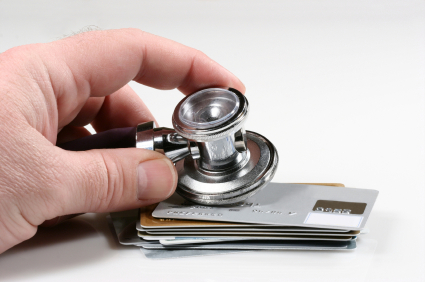 Dear Liz: I watched 60 Minutes last night regarding the 3 credit bureaus and was amazed at what I learned. I was hoping to spend time trying to repair our credit score, but according to the report last evening, it sounds like a total waste of time as the three credit bureaus basically are not accountable to anyone and they very rarely take action in your defense. Was this a one-sided view?
Dear Liz: I watched 60 Minutes last night regarding the 3 credit bureaus and was amazed at what I learned. I was hoping to spend time trying to repair our credit score, but according to the report last evening, it sounds like a total waste of time as the three credit bureaus basically are not accountable to anyone and they very rarely take action in your defense. Was this a one-sided view?
Answer: The credit bureaus would tell you yes, but the answer is way more complicated than that.
The show reported that 40 million Americans have errors on their credit reports. That’s about one in five U.S. adults covered by the credit bureau industry. About half (one in 10) have errors serious enough to hurt their credit scores.
(Update: A Federal Trade Commission report released today said one in four had at least one “potentially material error” on at least one of their three credit reports and that one in 20 consumers had significant errors on their credit reports that could cause them to pay more loans.)
That’s a pretty high error rate, but an even bigger problem is that the process to fix mistakes is almost completely automated and structured to favor the data provider (the banks, lenders and others supplying information) over the consumer. Here’s how the Ohio attorney general described it:
“The federal law says that if you believe that there is a mistake, you can go to them and they have an obligation to do a reasonable investigation. They’re not doing a reasonable investigation. They’re not doing an investigation at all.”
The show interviewed former bureau employees in Chile who confirmed what others have reported: that their jobs were to assign two-digit codes to the complaints. That’s it. Then the complaints are forwarded to the lenders and other data providers for response.
People can and do get errors fixed if the data provider acknowledges the error or simply fails to respond to the credit bureaus’ queries. If the data provider continues to insist it’s right, however, it’s pretty tough (if not impossible) to get the bureaus to step in.
That’s how people get caught in seemingly endless cycles of disputing mistakes only to have them reappear, or never disappear, from their reports.
The credit bureaus, which apparently turned down opportunities to respond on camera, now point to a study by the Policy and Economic Research Council that found 95% of consumers were satisfied with the outcome of their disputes. The study was paid for by a grant from the Consumer Data Industry Association, which represents the credit bureaus.
It’s not exactly pointless try to fix errors. The FTC report said four out of five people who dispute errors get results. You should still try, and you may well find it’s possible, but you should plan to be tenacious if your initial efforts are rebuffed. (You should get your free credit reports directly from www.annualcreditreport.com. Don’t go to other, lookalike sites, some of which are owned by the credit bureaus but that aren’t the federally-mandated site that gets you your free reports.)
You should also support efforts by regulators and consumer advocates to require the credit bureaus to put a more responsive system in place.
